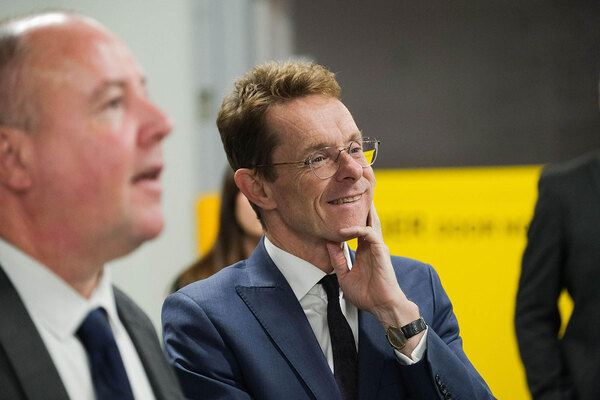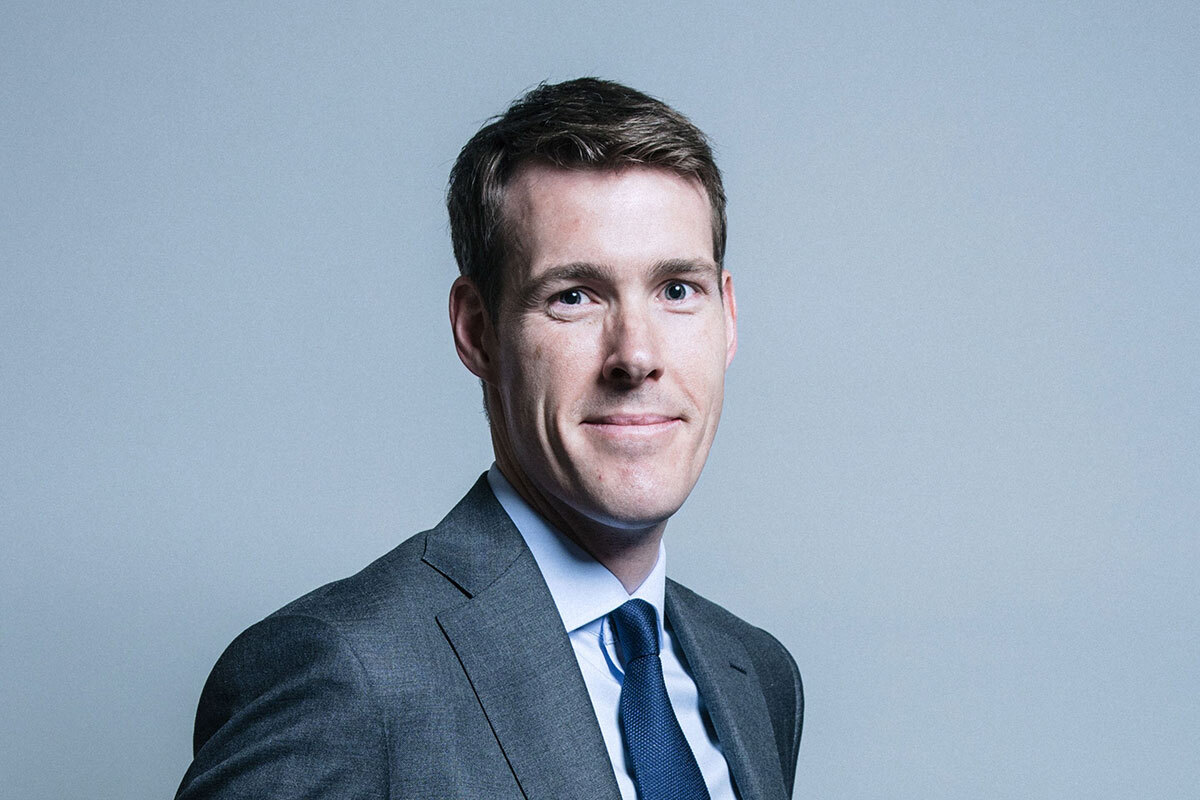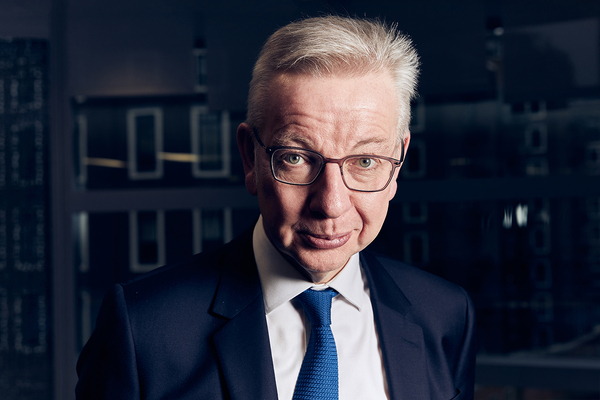The mayoral battle over social rent: a conversation with Andy Street
Election candidates tussling over who will build the most homes for social rent – surely it can’t be true! But that is what is playing out in the West Midlands mayoral election. Martin Hilditch speaks to high-profile incumbent mayor Andy Street about his plans and whether he will back Inside Housing’s Build Social campaign

Inside Housing’s Build Social campaign has spoken to a number of high-profile politicians since it launched last year.
Our conversation with housing secretary Michael Gove saw him refer to our call for parties to commit to building 90,000 social homes a year in England in their manifestos as “an honestly arrived at assessment of need”. That was the first time those figures, based on widely supported sector research, had received such an acknowledgement from the centre of government.
Labour’s shadow housing minister Matthew Pennycook had similar words as he said he “agrees with the aspiration” of the campaign and pledged that the majority of grant funding under a Labour government would be for social rent.
The national election campaign is, of course, just gearing up. Despite the warm words, there are few specifics when it comes to the number of homes for social rent that the parties will promise to deliver.
But it isn’t just national politicians who will influence the future for the 141,000 children who are stuck in temporary accommodation at the time of writing. Regionally there are signs that politicians are waking up to the impact the shortage of homes for social rent are having on their populations. In some places, that means we are starting to get a specific feel for what the future holds for social rent.
Competition over the delivery of the tenure has become a feature of the campaign for the West Midlands mayoralty in a significant way for the first time since the role was created in 2017. Frontrunners Andy Street and Richard Parker have been battling over who will deliver the most over the past couple of months. Ahead of polling day, we spoke to both of the candidates about their plans and the Build Social campaign, starting today with Andy Street, the former managing director of apartment store John Lewis, who has been West Midlands mayor since 2017.
Our chat with Mr Street takes place weeks ahead of the launch of his housing manifesto, following his speech at this year’s Switchee Summit. More on the detail of that manifesto shortly, but we chiefly want to find out why social rent is a priority for Mr Street this time out, and his reaction to the aims of the Build Social campaign.
Mr Street starts by talking about the overall track record of housing delivery in his time in charge. This includes exceeding the pledge to deliver a minimum of 20% affordable homes in schemes funded by the West Midlands Combined Authority (the current figure is 33% – 2,045 homes out of a total of 6,285).
But he admits that the delivery of homes for social rent is an area in which “this region, like many other regions, has not made the progress that it should have done”. Currently housing associations in the region start around 500-700 new social homes a year.
“You can see that it [social housing] is very clearly where the need is, given the number of people who are in some form of temporary accommodation, for example,” Mr Street tells us.
If the numbers have been too low in the past, how is Mr Street planning to turbo-charge them if he wins the mayoralty for a third time this week?
The answer relates to the “deeper devolution” deal the combined authority signed with government last year, which will see it directly oversee up to £400m of investment across the region from the Affordable Homes Programme.
“We were successful in our devolution deal in securing for the first-time access to the government’s affordable housing programme money,” Mr Street states. “And we’re expecting to use that with housing associations and some local authorities directly on the provision of social homes going forward. My belief is that with that funding, we will be able to accelerate the rate of social housebuilding.”
At the time of our conversation, Mr Street hadn’t revealed the numbers he would pledge to deliver – but he has since pledged to treble delivery to around 1,700 per year by 2028. His opponent, Richard Parker, who we will be speaking to tomorrow, has since pledged 300 more.
The message to councils and housing associations should be clear, Mr Street states: “You should be approaching us with [any] viability gaps you have on social housing schemes.”
If that is the broad commitment, what does Mr Street think about the aims of the Build Social campaign?
“That is definitely a reasonable aspiration in principle,” he states. “It sounds like the maths is broadly right to me. I would like the West Midlands to play its very full part in achieving that number.”
Since our conversation, Mr Street has launched his housing manifesto. While his main 2021 manifesto did have a passing reference to social housing, this time round there is a whole section devoted to delivery under the headline: “Triple social housing delivery in the West Midlands: a new priority for the combined authority”.
The hope is that the £400m will just be the start too, with the manifesto pledging to push for the “full local devolution of government affordable homes funding after 2026, to allow the West Midlands Combined Authority to fund the development of new affordable housing schemes in the region”.
Other pledges include maintaining the delivery of the minimum 20% affordable target for all WMCA-funded schemes, developing “an ambitious programme of estate regeneration across the region” and retrofitting existing homes with energy efficiency measures.
It is the detail on the delivery of homes for social rent, however, that marks the biggest departure from previous manifestos. With just a couple of days to go, there is still all to play for in the mayoral race. But it makes a nice change to see candidates battling to see who can deliver the most.
Aims of our Build Social campaign
For all political parties to commit to funding a substantial programme of homes for social rent in their manifestos at the next general election. This includes:
● 90,000 social rented homes a year over the next decade in England.
● 7,700 social rented homes a year in Scotland.
● 4,000 social rented homes a year in Wales.
Inside Housing commits to:
● Work to amplify the voices of people who need social housing, including families living in temporary housing and overcrowded conditions.
Recent longform articles by Martin Hilditch
100 years of Midland Heart: Glenn Harris reflects on the past and sets out his plans for the future
Midland Heart celebrates its 100th birthday in 2025, and its chief executive has ambitious plans for the future. Glenn Harris tells Martin Hilditch why the next five years will be a significant milestone in the housing association’s history
Ian McDermott talks Peabody’s big merger and the future of social housing
Ian McDermott, chief executive of Peabody, sits down with Inside Housing’s editor Martin Hilditch to talk mergers, housing management at one of the sector’s biggest landlords and how the sector can build more homes
‘The North really needs that voice’: 50 years of the Northern Housing Consortium
2024 marked the 50th anniversary of the Northern Housing Consortium. Chief executive Tracy Harrison talks about her proudest achievements with Inside Housing editor Martin Hilditch – and what the future holds for the North’s housing providers
Plan for Housing campaign: a big opportunity for an ambitious government housing strategy
Inside Housing has joined the National Housing Federation’s #PlanForHousing campaign. Its chief executive Kate Henderson tells Martin Hilditch why the next few months are critical to the future of housing in England
Sign up to our Best of In-Depth newsletter
We have recently relaunched our weekly Long Read newsletter as Best of In-Depth. The idea is to bring you a shorter selection of the very best analysis and comment we are publishing each week.
Already have an account? Click here to manage your newsletters.













